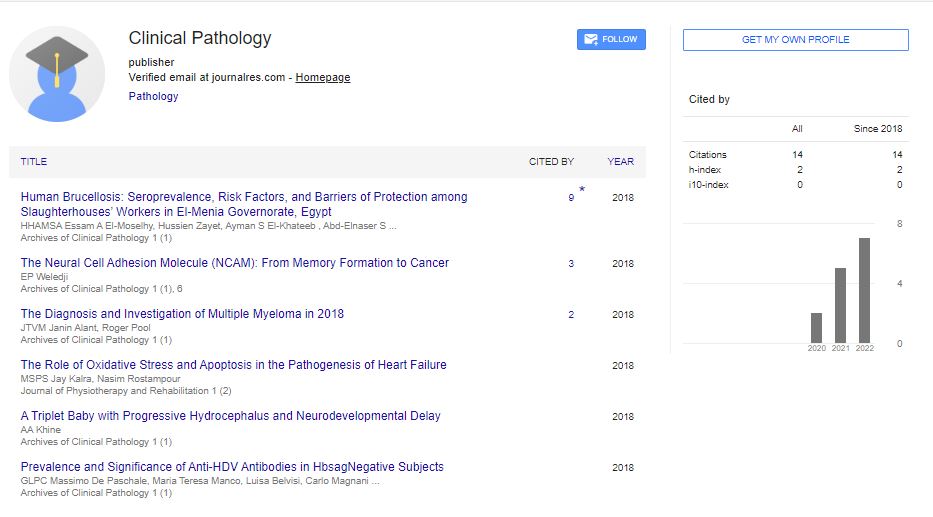Effect of Egyptian and Libyan bee honeys phenolic compounds on squamous cell carcinoma cell line Hep-2
Ehab Abd Elhamid, El-Gihani GA, El-Malahy MH and El-Sayed AF
Misr International University, Egypt
Ben Ghazi University, Lybia
Ain Shams University, Egypt
VACSERA, Egypt
: Arch Clin Pathol
Abstract
Background: Honey has been used as food and a traditional medicament since ancient times. However, recently many scientists have been concentrating on the anti-oxidant, anti-proliferative, anti-inflammatory and other properties of honey. This work is conducted to investigate the potential anticancer effect of various types of natural bee honey obtained from different Arabic regions on Hep-2 carcinoma cell line in comparison with 5-fluorouracil (5-FU). Methods: Anticancer activities of all samples were determined against the Hep-2 cell line using cytotoxicity assay, cytological analysis, DNA fragmentation assay and flow cytometry. Results: All honey samples obtained from different Arabic botanical showed anti-proliferative and apoptotic inducing activities when tested against Hp-2 cells in a time-dependent manner. Conclusions: Different types of natural bee honey are cytotoxic and showed antiproliferative activity to Hep-2 cell line. Total phenolic content (TPC) on the analysed honeys had impact on their anti-cancerous activity. Eucalyptus honey which has the highest TPC also showed the best apoptotic effect on Hep-2 cells.
Biography
Ehab Abd Elhamid has completed his PhD at the age of 33 years from Ain Shams University and Postdoctoral Studies from School of Dentistry, Ain Shams University, Egypt. He is the Director of Medical Research Center, Misr International University. He has published more than 25 papers in either local or international journals and has been serving as an executive director of Quality Assurance and Accreditation Project at Ministry of Higher Education, Egypt.
E-mail: ihab.said@miuegypt.edu.eg
 Spanish
Spanish  Chinese
Chinese  Russian
Russian  German
German  French
French  Japanese
Japanese  Portuguese
Portuguese  Hindi
Hindi 